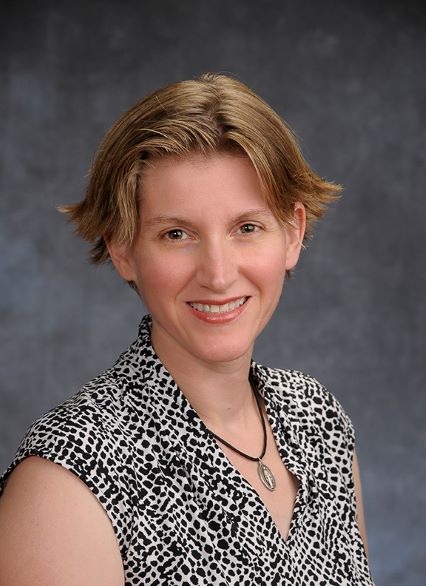- Medical Matters
Iodine: A Woman’s Breast Friend
by Theresa Stigen, MD, ObGyn
For women who suffer from ovarian cysts, premenstrual breast tenderness and fibrocystic breast disease, the struggle is REAL! These conditions can cause relationship tension in addition to being uncomfortable and just down right painful. Many women have learned that a deficiency in progesterone or excess of estrogen or both are common underlying causes of these conditions. What most women don’t know, however, is that a deficiency in an important but commonly overlooked nutrient is oftentimes also a hidden factor in these same women’s health problems. Let me introduce you to one of the most important nutrients in a woman’s body…Iodine.
Most people think of the thyroid when they think of iodine, and it’s true that the thyroid certainly has the highest concentration of iodine in the body. What they don’t realize is that the second highest concentration of iodine in a woman’s body is in the breasts. And #3 on the list? The ovaries. In the breasts, iodine decreases the ability of estrogen to bind to estrogen receptors. An iodine deficiency therefore allows estrogen to bind to it’s receptor more often, causing the painful and lumpy symptoms seen with premenstrual breast tenderness and fibrocystic breast changes. Some studies suggest that low iodine may even be a risk factor for breast cancer. During lactation, special receptors in the milk ducts concentrate iodine in the breast milk so that a nursing baby is sure to get enough of this nutrient which is very important for their brain development. Iodine plays an important role in the ovaries as well. Iodine in the fluid around the maturing egg is critical for normal ovulation and a deficiency in it is associated with ovarian cysts and more painful ovulations. In some cases, this can show up as infertility due to failure of the egg to be released from the ovary, a condition known as Luteinized Unruptured Follicle Syndrome (aka LUFS). When it comes to critical nutrients for a woman’s optimal health, iodine definitely is titanic! And lest we leave the men out, studies have shown iodine to be important for prostate health as well.
Unfortunately, most of the available tests for iodine give unreliable results for one reason or another, so testing for iodine deficiency is not a sound strategy. Symptoms of premenstrual breast tenderness, repetitive ovarian cysts and fibrocystic changes are all likely indications that an iodine deficiency is present. However, low progesterone or high estradiol or both can also cause these symptoms, so charting your menstrual cycle with NFP and having an evaluation for these hormones after ovulation is important to make an accurate diagnosis. If symptoms don’t resolve despite optimizing the hormone levels, an iodine supplement may be exactly what is needed to bring about dramatic relief.
That being said, iodine is a tricky nutrient that can cause significant side effects if used inappropriately. There has been a trend lately of using very high doses of potassium iodide, between 12-50mg daily. Such high doses can shut down the thyroid completely and even trigger autoimmune thyroid disease. Supplementing with large amounts of kelp can do the same thing. During my ICU rotation in residency, I took care of a man who literally put himself into a coma by taking large amounts of a kelp supplement instead of taking his thyroid medication. So while iodine is an important and astonishingly powerful nutrient for women’s health, there are some important precautions which need to be observed.
First, you should always have a complete thyroid panel, including antibodies for TPO and thyroglobulin, before starting any iodine supplementation beyond the small doses that are present in a multivitamin. If you have thyroid disease or the antibodies return positive or you already know you have Hashimoto’s Disease, you need to be under a physician’s guidance to safely supplement with iodine to avoid causing any serious side effects on the thyroid. Second, iodine supplementation should always be accompanied by selenium supplementation. Selenium acts as an anti-oxidant for the thyroid and helps to protect it against taking too much iodine. You should aim for about 200mcg of selenium daily. Third, the kind of iodine you supplement with makes a big difference both in terms of how well it works as well as safety. Nascent iodine, sometimes called atomic iodine, is not taken up by the thyroid as strongly as potassium iodide, but is very well absorbed by the breast and ovaries. It is therefore safer for the thyroid and more effective for the breast and ovaries than the more commonly used potassium iodide. And finally, the dose makes the poison. Anything can be poisonous if too much is taken, even water and oxygen. With iodine, 150mcg can prevent goiters in the thyroid, but will not be enough to address ovarian cysts or painful breasts. Many experts recommend dosages at the same level that they believe to be the daily iodine intake of Japanese women, who have an iodine rich diet of seaweed, fish and seafood and also have low levels of breast disease. However, the initial estimates of 12mg of daily iodine intake in the Japanese diet have been shown to be greatly exaggerated and more precise studies have shown it to be closer to 1-3mg daily, so this is a much more reasonable dose range. Those with Hashimoto’s Disease can still supplement with iodine, but will need to use much lower levels than this and again, should only supplement under a physician’s guidance. I have seen careful iodine replacement bring about some dramatic results. Stubborn premenstrual breast pain disappears within one cycle, fibrocystic changes dissolve to more comfortable and less lumpy breasts and stubborn LUFS that refuse to respond to more typical treatments suddenly resolve with the addition of nascent iodine and the happy result of a greatly longed for pregnancy.
About The Author


